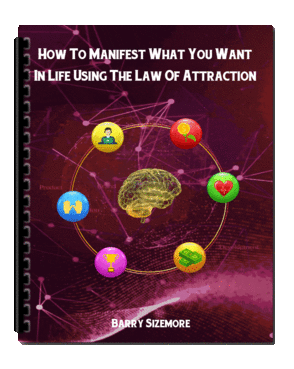Friendships and connections play a critical role in our overall well-being, acting as a foundation for emotional support, companionship, and personal development.
Strong social bonds can enhance our happiness, reduce stress, and create a sense of belonging.
They provide a support system to navigate life's challenges and celebrate triumphs, contributing to a more fulfilled and enriched life.
Friendships offer different perspectives, encouraging personal growth and broadening our understanding of the world.
Cultivating meaningful relationships is not just about enhancing social life but also about nurturing our mental and emotional health, making it an essential part of living a balanced and rewarding life.
Manifesting friends involves the deliberate process of attracting and forming meaningful relationships by aligning one's mindset and actions toward this goal.
At its core, this concept relies on the power of intention and positive thinking, encouraging individuals to visualize and focus on the types of friendships they wish to cultivate.
It involves being open to opportunities for connection and enhancing one's social energy to draw like-minded individuals.
By setting clear intentions and engaging in practices that reinforce these goals, such as affirmations and mindful interactions, individuals can create an environment conducive to making new friends.
Manifesting friends is not about forcing connections but rather fostering an inviting presence that promotes organic, authentic relationships.
Cultivating lifelong connections involves a multi-faceted approach that includes self-reflection, community engagement, and nurturing relationships.
It begins with introspection to understand your values, interests, and social goals, setting a solid foundation for attracting compatible friendships.
The next step is actively engaging with new communities, whether in-person or online, to expand your social circle and discover opportunities for meaningful interactions.
Initiating conversations and demonstrating genuine interest in others helps establish initial connections, laying the groundwork for sustainable friendships.
Finally, nurturing these relationships through consistent communication, empathy, and trust ensures the bonds grow stronger over time, transforming acquaintances into cherished lifelong friends.
By following these steps, individuals can systematically build and maintain a network of supportive, fulfilling relationships.
Step 1: Self-Reflection And Personal Growth
Self-reflection and personal growth form the cornerstone of cultivating meaningful friendships and connections.
This initial step involves a deep exploration of one's values, interests, and social habits to better understand the type of friendships that align with personal goals.
By actively engaging in self-reflection, individuals can identify areas for personal development, such as building confidence and improving social skills, which are essential for making and sustaining connections.
This phase also entails setting intentions and defining what one seeks in friendships, paving the way for genuine and fulfilling interactions.
By focusing on self-awareness and personal growth, individuals can create a strong foundation upon which lifelong relationships are built.
Identifying Personal Values And Interests
Reflect On What You Value In Friendships
Reflecting on what you value in friendships is a crucial step in forming relationships that resonate with your core beliefs and personal vision.
Each individual may prioritize different aspects such as trust, empathy, or shared interests, depending on their life experiences and personal needs.
Taking the time to evaluate which traits and qualities are essential to you helps in identifying what kind of social connections will bring genuine satisfaction and growth.
This awareness not only clarifies your expectations from potential friends but also guides you in offering the same level of commitment to others.
By understanding your values, you can seek and nurture friendships that are not only enjoyable but also meaningful, ensuring they contribute positively to your life.
List Hobbies And Interests That Could Connect You With Others
Exploring hobbies and interests is an excellent strategy for connecting with like-minded individuals and forming authentic friendships.
By identifying activities you are passionate about, whether they are sports, arts, technology, or hiking, you naturally place yourself in environments where you can encounter people with similar interests.
Joining clubs, classes, or community events related to your hobbies not only enhances your skills but also provides ample opportunities for socializing and developing lasting connections.
This proactive approach allows you to meet others who share your enthusiasm and values, fostering a more authentic bond.
Sharing experiences through mutual interests creates memorable interactions, laying the groundwork for friendships rooted in common pursuits.
Assess Your Current Social Circle
Assessing your current social circle is an essential exercise in understanding the dynamics and value of your existing relationships.
This process involves reflecting on the diversity and quality of your friendships, considering how they align with your values and contribute to your personal growth.
Evaluate whether your current connections offer support, encouragement, and positive interactions, or if certain relationships have become stagnant or even detrimental.
Identifying gaps or areas of dissatisfaction can serve as motivation to seek out new connections that better fit your evolving needs.
By taking stock of your social circle, you can intentionally strengthen productive relationships while also making room for more fulfilling friendships that enhance your overall well-being and happiness.
Building Confidence And Positive Self-Image
Practice Self-Affirmations To Boost Confidence
Practicing self-affirmations is a powerful technique to enhance confidence and cultivate a positive self-image.
Self-affirmations are positive statements that individuals repeat to themselves regularly to reinforce their worth and abilities.
Engaging in this practice helps counteract negative self-talk and encourages the brain to adopt an uplifting mindset.
By consistently affirming one's strengths and core values, individuals can build resilience and empowerment, transforming self-doubt into belief in their potential.
This approach can enhance overall self-perception, making individuals more confident in social settings and more adept at nurturing meaningful connections.
Over time, the practice of self-affirmations can create a profound shift in how a person perceive themselves and their capabilities, leading to a healthier, more optimistic outlook on life.
Work On Improving Social Skills
Improving social skills is vital for developing meaningful friendships and navigating various social environments with confidence.
Social skills encompass a range of abilities, such as active listening, effective communication, empathy, and the ability to read social cues.
To enhance these skills, individuals can engage in activities that foster interaction, such as joining discussion groups, participating in team sports, or volunteering.
Seeking feedback from trusted friends or mentors can provide valuable insights into areas that require improvement.
Through practice and reflection, individuals can become more adept at initiating conversations, maintaining engaging interactions, and fostering a comfortable atmosphere in social settings.
As these skills develop, they contribute significantly to building strong, mutually beneficial relationships that enhance personal and social well-being.
Emphasize Personal Strengths
Emphasizing personal strengths is a fundamental aspect of building self-confidence and achieving personal growth.
Recognizing and leveraging your unique talents and skills can provide a significant advantage in both personal and professional life.
By focusing on what you excel at, you can create opportunities that align with your capabilities and passions, leading to greater satisfaction and success.
It's important to regularly reflect on your accomplishments and identify the traits that contributed to those achievements, such as creativity, determination, or leadership.
Sharing these strengths in social or work environments can also boost your visibility and encourage others to appreciate your contributions.
By actively acknowledging and utilizing your strengths, you lay the groundwork for personal development and inspire confidence in your ability to tackle new challenges and realize your potential.
Setting Intentions And Goals
Define What You Want In Friendships
Defining what you want in friendships is a crucial step in cultivating relationships that are both rewarding and enduring.
It involves introspection and identifying the qualities, values, and experiences you seek in your connections with others.
Consider what makes friendships fulfilling for you—whether it's mutual respect, shared interests, emotional support, or intellectual stimulation.
Reflect on past friendships to discern what worked well and what didn't, as this can provide valuable insights into your preferences.
By articulating your desires clearly, you set a foundation for attracting the right people into your life, making it easier to form connections that align with your needs and aspirations.
Knowing what you want in friendships not only enhances the quality of your social interactions but also empowers you to establish boundaries and nurture relationships that contribute positively to your personal growth and happiness.
Create Actionable Goals To Meet New People
Creating actionable goals to meet new people is an essential strategy for expanding your social network and gaining new perspectives.
Start by identifying specific social settings or activities where you are likely to encounter individuals with shared interests, such as professional networking events, hobby-based clubs, or community volunteer opportunities.
Set clear, achievable objectives, such as attending a certain number of events each month, striking up conversations with at least three new people at each gathering, or exchanging contact information with potential connections.
Leverage digital platforms like social media or online groups to reach out to others who share similar passions or career interests.
By setting and adhering to these goals, you can methodically broaden your circle, create opportunities for meaningful interactions, and build a diverse and supportive network.
Visualize The Friendships You Desire
Visualizing the friendships you desire is a powerful exercise that can significantly influence your ability to manifest these relationships in reality.
This process involves imagining the traits and dynamics of ideal friendships, allowing you to gain clarity on the qualities that matter most to you, such as trust, loyalty, support, or shared interests.
Visualization helps you set an intention by creating a vivid mental picture of the experiences and emotions you wish to cultivate in your friendships.
By regularly engaging in this practice, you can train your mind to recognize opportunities for connection with individuals who embody these qualities.
Moreover, visualization encourages you to embody the attributes you wish to attract in others, fostering a supportive environment where such friendships can thrive.
By embracing this approach, you open the door to attracting fulfilling and harmonious relationships that align with your deepest values and aspirations.
Step 2: Engaging With New Communities
Engaging with new communities is a pivotal step in expanding your social horizons and enhancing your personal growth.
By immersing yourself in diverse groups, you open up avenues for learning, collaboration, and mutual support, all of which contribute to a richer life experience.
Engaging with communities requires a willingness to step out of your comfort zone and embrace different perspectives, fostering an inclusive attitude.
This process not only helps in meeting new individuals with unique insights but also in developing a sense of belonging and purpose within various social ecosystems.
As you actively participate in community activities, you build bridges and cultivate relationships that can positively impact both your personal and professional life.
Step 2 empowers you to harness the potential of these connections, offering both a platform for personal development and the satisfaction of contributing to a collective cause.
Exploring New Social Environments
Attend Events And Meetups Related To Your Interests
Attending events and meetups related to your interests is an effective way to connect with like-minded individuals and deepen your knowledge in areas you're passionate about.
By participating in these gatherings, you gain access to a community of people who share your enthusiasm and can offer new insights and perspectives.
Whether you're interested in technology, art, sports, or any other field, attending related events allows you to stay updated on the latest trends and developments.
These events frequently feature workshops, seminars, or talks by experts, giving you the chance to learn from the best and apply new strategies to your pursuits.
Furthermore, engaging in conversations with others at meetups can lead to enduring friendships, collaborative ventures, or professional opportunities.
By immersing yourself in these dynamic environments, you not only expand your social network but also nurture your personal growth and progress in your areas of interest.
Join Clubs, Classes, Or Workshops
Joining clubs, classes, or workshops provides a structured and supportive environment to enhance your skills while connecting with people who share similar interests.
This involvement offers a dedicated setting for learning and growth, whether it's a cooking class, a book club, or an art workshop.
Participants typically gather with the intent to engage, exchange ideas, and collaborate, fostering a sense of community and camaraderie.
These activities not only allow you to advance your knowledge and expertise in a particular field but also help in building social connections with equally passionate individuals.
Furthermore, such interactions can lead to lasting friendships, professional networks, and opportunities for joint projects or initiatives.
By actively participating in these organized settings, you invest in your personal development while simultaneously expanding your social horizon.
Utilize Online Platforms To Connect
Utilizing online platforms to connect is a modern approach to broadening your social network and finding communities that resonate with your interests.
In the digital age, platforms such as social media, online forums, and networking sites offer vast opportunities to connect with individuals worldwide.
These platforms allow you to join groups, participate in discussions, and share ideas with people who have similar passions, regardless of geographic location.
The convenience of online interaction enables you to engage at your own pace and according to your schedule, making it easier to maintain connections and collaborate on shared projects.
By thoughtfully curating your online presence and actively participating in virtual communities, you can establish meaningful relationships and access a wealth of knowledge and support from a diverse array of talents and perspectives.
Initiating And Sustaining Conversations
Master The Art Of Small Talk
Mastering the art of small talk is an essential skill for forming initial connections and easing into deeper conversations.
While it may seem trivial, small talk serves as a foundation for establishing rapport and building trust between individuals.
Engaging in light-hearted, casual conversation can help break the ice, create a comfortable atmosphere, and express genuine interest in the other person's thoughts and experiences.
By honing your ability to effortlessly navigate small talk, you can learn to read social cues, ask open-ended questions, and respond with empathy and attentiveness.
These interactions, though brief, open doors to more meaningful dialogues and lasting relationships by fostering an environment where individuals feel valued and heard.
Practicing small talk not only enhances your communication skills but also enriches your social and professional engagements by teaching you to connect with others effectively and confidently.
Ask Open-Ended Questions
Asking open-ended questions is a powerful technique in conversation that encourages others to express themselves more fully and openly.
Unlike closed-ended questions, which often lead to yes or no responses, open-ended questions invite the speaker to explore their thoughts and feelings in greater depth.
This approach not only fosters more engaging and dynamic discussions but also demonstrates a genuine curiosity about the other person's perspective.
By asking questions that start with "how," "why," or "what," you can elicit detailed responses that reveal insights and foster a deeper understanding.
This method of questioning also empowers individuals to shape the conversation, promoting a sense of collaboration and mutual respect.
Whether in personal or professional contexts, mastering the art of asking open-ended questions can significantly enhance your ability to connect with others and build strong, lasting relationships.
Show Genuine Interest And Active Listening
Demonstrating genuine interest and practicing active listening are crucial components of effective communication and relationship-building.
When you show true curiosity and engagement in what others are saying, it signals respect and empathy, fostering an environment of trust and openness.
Active listening goes beyond merely hearing words; it involves being fully present, making eye contact, and responding thoughtfully.
By asking follow-up questions and reflecting on the speaker's message, you validate their feelings and encourage deeper dialogue.
This approach not only enhances interpersonal relationships but also cultivates a sense of belonging and cooperation.
Whether in a casual conversation or a professional setting, showing genuine interest and active listening can lead to stronger connections, improved understanding, and mutual support.
Networking And Expanding Social Circles
Leverage Existing Connections To Meet Others
Utilizing your existing network to meet new people is an effective strategy for expanding your social and professional circles.
Your current connections can provide valuable introductions to individuals who share similar interests or align with your professional goals.
By reaching out to friends, family, or colleagues and expressing your desire to connect with new acquaintances, you tap into a wealth of opportunities that might otherwise remain hidden.
This approach not only helps you meet like-minded individuals but also strengthens your current relationships by fostering a sense of collaboration and support.
Leveraging existing connections can facilitate access to diverse perspectives and experiences, enhancing your personal growth and professional opportunities.
By nurturing and expanding your network, you create a dynamic web of relationships that can offer guidance, inspiration, and opportunities for collaboration.
Participate In Group Activities
Engaging in group activities is an excellent avenue for broadening your social network and improving interpersonal skills.
Whether it's joining a club, attending workshops, or participating in community events, group activities provide the perfect platform for meeting new people and forming connections based on shared interests.
These activities create a dynamic environment that fosters collaboration, team spirit, and a sense of belonging.
Participating in such settings exposes you to diverse perspectives and enhances your ability to work effectively within a team, a skill that is invaluable in both personal and professional realms.
Group activities often present opportunities to learn new skills or hobbies, further enriching your personal development.
By immersing yourself in group activities, you not only expand your social circle but also contribute positively to a community of like-minded individuals.
Collaborate On Community Or Group Projects
Collaborating on community or group projects offers a unique opportunity to connect with individuals while working toward a common goal.
These projects can range from neighborhood improvement initiatives to professional joint ventures, each fostering a sense of community and teamwork.
By working together, participants can leverage diverse skills and perspectives, leading to innovative solutions and success.
Such collaborations not only enhance problem-solving abilities but also build strong, supportive networks that can be relied upon in the future.
Furthermore, these experiences encourage a spirit of giving back and civic engagement, as participants contribute positively to their communities.
Engaging in group projects also cultivates leadership and organizational skills, making it a valuable endeavor for personal and professional growth.
By collaborating effectively, participants can achieve significant outcomes while forging lasting relationships.
Step 3: Nurturing And Strengthening Relationships
Fostering and enhancing relationships is a fundamental aspect of personal and professional success.
As individuals interact, it's essential to nurture these connections to ensure their growth and vitality.
This involves investing time and effort to understand, support, and appreciate others.
By engaging in meaningful communication, showing appreciation, and offering assistance, you can build a foundation of trust and respect.
Strengthening relationships also involves recognizing and celebrating achievements together, which solidifies bonds and promotes a sense of community.
Whether with family, friends, or colleagues, nurturing relationships is an ongoing process that enriches life through shared experiences and mutual benefits, leading to a fulfilling and interconnected existence.
Practicing Empathy And Understanding
Work On Being A Good Listener
Developing strong listening skills is essential for fostering meaningful and effective communication.
Being a good listener involves fully concentrating on what the speaker is saying, without being distracted by outside thoughts or interruptions.
This can be achieved by maintaining eye contact, nodding in acknowledgment, and providing verbal affirmations, which demonstrate attentiveness and interest.
By asking clarifying questions, you not only ensure that you understand the speaker's message but also show that you value their perspective.
Good listening also requires reading non-verbal cues and responding to them appropriately, thereby creating an atmosphere of openness and trust.
Cultivating the habit of active listening reinforces mutual respect in relationships and encourages a deeper level of engagement and collaboration, strengthening bonds and fostering positive interactions.
Show Appreciation And Gratitude
Expressing appreciation and gratitude is a powerful way to enhance relationships and foster a positive environment.
By acknowledging the contributions and efforts of others, you reinforce their value and inspire continued goodwill.
Simple acts, such as saying "thank you," sending a thoughtful note, or offering a sincere compliment, can make a significant impact on someone's day.
Demonstrating gratitude not only uplifts the recipient but also enriches your sense of well-being, as it encourages a focus on the positive aspects of life.
Practicing gratitude cultivates an atmosphere of mutual respect and admiration, making interactions more meaningful and constructive.
By regularly showing appreciation, you contribute to a culture of kindness and collaboration, which strengthens the ties within any community or group.
Develop Conflict-Resolution Skills
Cultivating conflict-resolution skills is crucial for maintaining harmony in both personal and professional relationships.
It involves recognizing disagreements early on and addressing them constructively before they escalate.
Effective conflict resolution starts with open communication and active listening, allowing all parties involved to express their viewpoints and emotions without interruption.
It's essential to approach conflicts with empathy, striving to understand the underlying concerns and finding common ground.
By remaining calm and objective, individuals can facilitate a collaborative environment where solutions are negotiated and agreed upon.
Being open to compromise and respecting diverse perspectives aids in finding resolutions that satisfy all parties.
Developing these skills leads to stronger, more resilient relationships and prepares individuals to manage disagreements in a way that promotes understanding and growth.
Consistency And Reliable Communication
Regularly Check In With Friends
Regularly checking in with friends is a vital practice for maintaining strong and supportive relationships.
These regular interactions foster a sense of connection and reassure friends that you care about their well-being.
Whether through a phone call, a text message, or a meeting for coffee, consistent check-ins help bridge the gap between physical and emotional distances.
These moments of contact allow you to share experiences, offer support during challenging times, and celebrate achievements together.
By prioritizing these check-ins, you demonstrate your commitment to nurturing the friendship, which in turn strengthens the bond and promotes mutual understanding.
Consistent communication serves as the foundation of lasting friendships, enriching one’s social support network and contributing to overall happiness and fulfillment.
Use Various Communication Methods
In today's interconnected world, utilizing diverse communication methods is essential for effective interaction and relationship-building.
By employing a variety of platforms—such as face-to-face conversations, phone calls, video chats, texts, emails, and social media—you can reach others in the way that best suits the context and individuals involved.
Different methods offer distinct advantages: face-to-face communication provides immediacy and allows for the full range of body language, while digital methods can transcend geographical distances and provide asynchronous communication that's convenient for busy schedules.
Adapting your communication style to incorporate multiple channels helps ensure messages are received and understood, catering to the preferences and needs of diverse audiences.
This versatility fosters a more inclusive and flexible environment, promoting richer and more empathetic interactions that enhance relationships in both personal and professional settings.
Share Experiences And Create Memories
Sharing experiences and creating memories with loved ones can significantly enrich relationships and enhance the quality of life.
Engaging in activities together—whether it's exploring new places, participating in group hobbies, or simply spending time at home—helps build a shared history that forms the foundation of deep, lasting connections.
These experiences contribute to a collective narrative, filled with laughter, learning, and personal growth.
The memories created during these times become cherished stories that can be revisited and enjoyed through future conversations and reflections.
Sharing experiences also fosters a sense of belonging and understanding, encouraging empathy and a greater appreciation for each other's perspectives.
By intentionally making space for shared activities, individuals cultivate bonds that are resilient and joyful, adding valued richness to their interpersonal landscapes.
Building Trust And Support
Keep Promises And Build Reliability
Keeping promises and building reliability are foundational elements of trust in any relationship.
When you consistently follow through on commitments, it signals to others that they can depend on you, reinforcing a sense of security and stability.
This dependability forms the bedrock of both personal and professional relationships, as it demonstrates integrity and accountability.
Reliability is nurtured by being realistic about what you can achieve and communicating effectively to manage expectations.
By honoring your word, you show respect and consideration for others, which fosters mutual respect and strengthens connections.
Over time, the reputation for being reliable not only enhances individual credibility but also contributes to a positive and supportive community or organizational culture.
Offer Assistance And Be There In Times Of Need
Offering assistance and being present in times of need are cornerstones of meaningful and supportive relationships.
By reaching out to help when someone is experiencing hardship or uncertainty, you demonstrate empathy and compassion, reinforcing the bond of trust that forms between people.
Whether it's offering a listening ear, providing practical help, or simply being a comforting presence, your willingness to be there can significantly impact a person's ability to cope with challenges.
This support not only bolsters emotional well-being but also fosters a sense of belonging and community.
By consistently showing up for others in their times of need, relationships are enriched and strengthened, creating a network of care and solidarity that enhances everyone's resilience and sense of connection.
Celebrate Successes Together
Celebrating successes together is a vital component of nurturing and reinforcing relationships.
Sharing moments of triumph, whether large or small, fosters a positive environment that uplifts and motivates everyone involved.
By acknowledging achievements, you not only validate the hard work and dedication that led to these successes but also inspire confidence and a sense of pride.
Celebrations can take many forms, such as organizing events, offering congratulations, or simply enjoying a moment of shared joy.
These acts of recognition strengthen bonds by creating shared memories and demonstrating mutual appreciation and support.
By rejoicing in each other's victories, individuals build a collective sense of accomplishment and reinforce a culture of positivity, camaraderie, and resilience within their relationships.
Conclusion
Manifesting and cultivating strong connections involves several key steps that build trust, understanding, and empathy.
Start by embracing diverse communication methods to ensure that you meet people where they are, fostering inclusivity and clarity.
Share experiences and create memories through joint activities that deepen relationships and create a shared history.
Keeping promises and building reliability reinforce trust, signaling that others can depend on you consistently.
Offer assistance and be present during challenging times to show empathy and strengthen bonds.
Celebrate successes together to acknowledge achievements and inspire confidence.
By integrating these steps, you create a supportive and positive environment that nurtures relationships and cultivates a network of genuine connections.
This holistic approach not only enhances individual relationships but also promotes a community of care and resilience.
Having a strong social network provides numerous advantages that significantly enhance both personal and professional aspects of life.
Social connections offer emotional support, fostering a sense of belonging and reducing feelings of loneliness and isolation.
These relationships provide a safety net during challenging times, offering advice, reassurance, and practical assistance.
On a professional level, a robust network can open doors to new opportunities, facilitate knowledge exchange, and encourage personal growth through diverse perspectives and experiences.
Social ties also contribute to improved mental and physical health, as engaging with others can boost mood, increase life satisfaction, and even enhance longevity.
Overall, cultivating a strong social network enriches one's life by creating a dynamic community that encourages resilience, supportiveness, and mutual growth.
Embarking on the journey to cultivate friendships is a rewarding and transformative experience that opens the door to new possibilities and personal growth.
By welcoming new connections into your life, you invite a rich tapestry of perspectives, experiences, and shared moments that add depth and vibrancy to everyday life.
Initiating friendships might feel daunting at first, but taking small steps like reaching out, showing genuine interest, and being open brings countless rewards.
Every interaction is an opportunity to learn, grow, and build a network of support and camaraderie.
Embrace the potential for forming meaningful bonds by stepping out of your comfort zone and engaging with others—whether through social activities, clubs, or volunteer work.
The path to friendship begins with you; by being proactive and thoughtful in your approach, you enrich not only your own life but also the lives of those around you, fostering a community of warmth, inclusivity, and understanding.
Download Our Free E-book!







